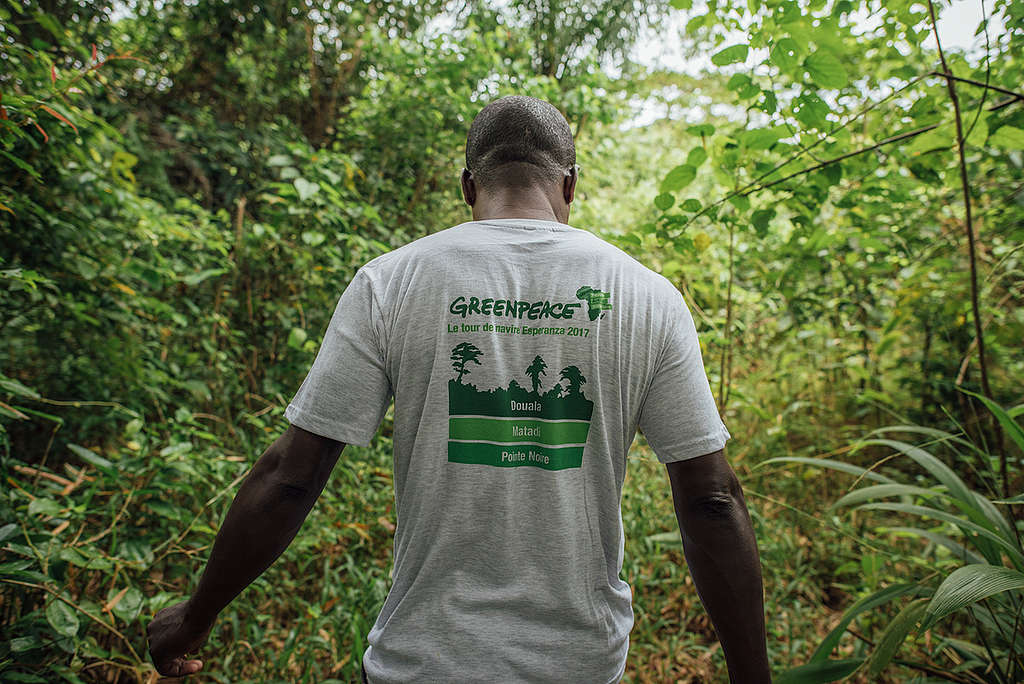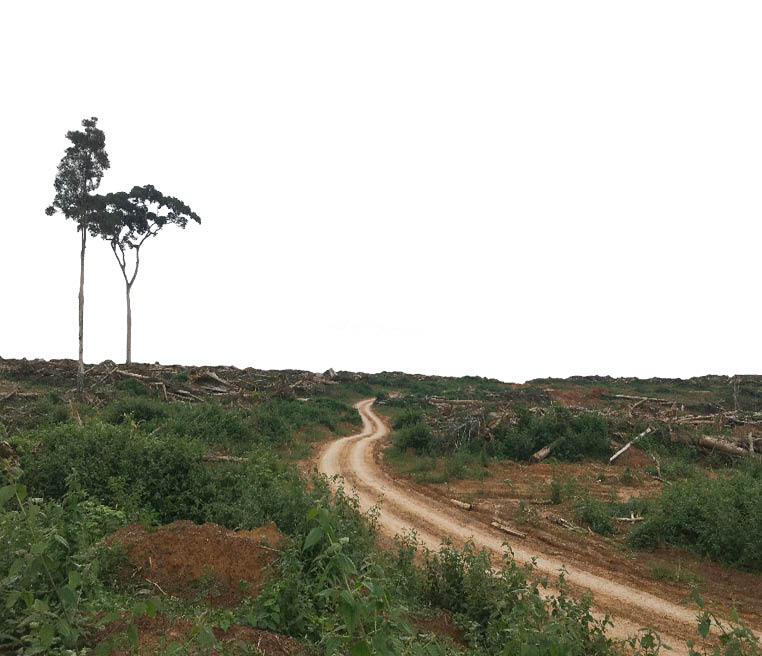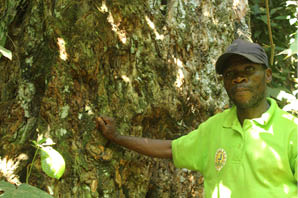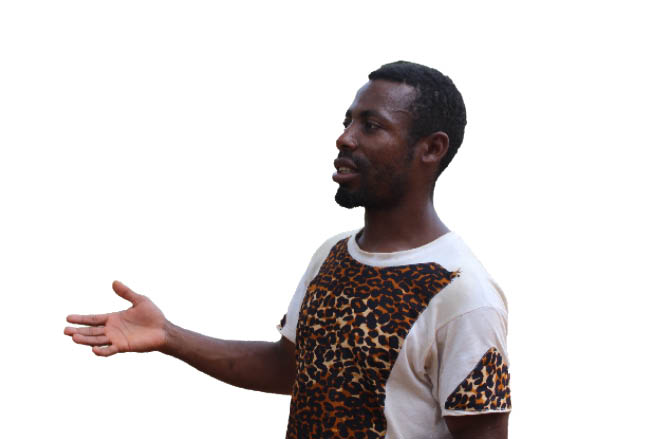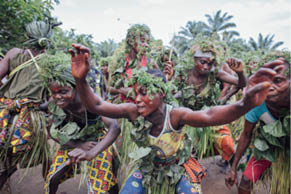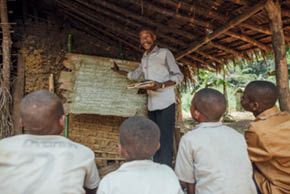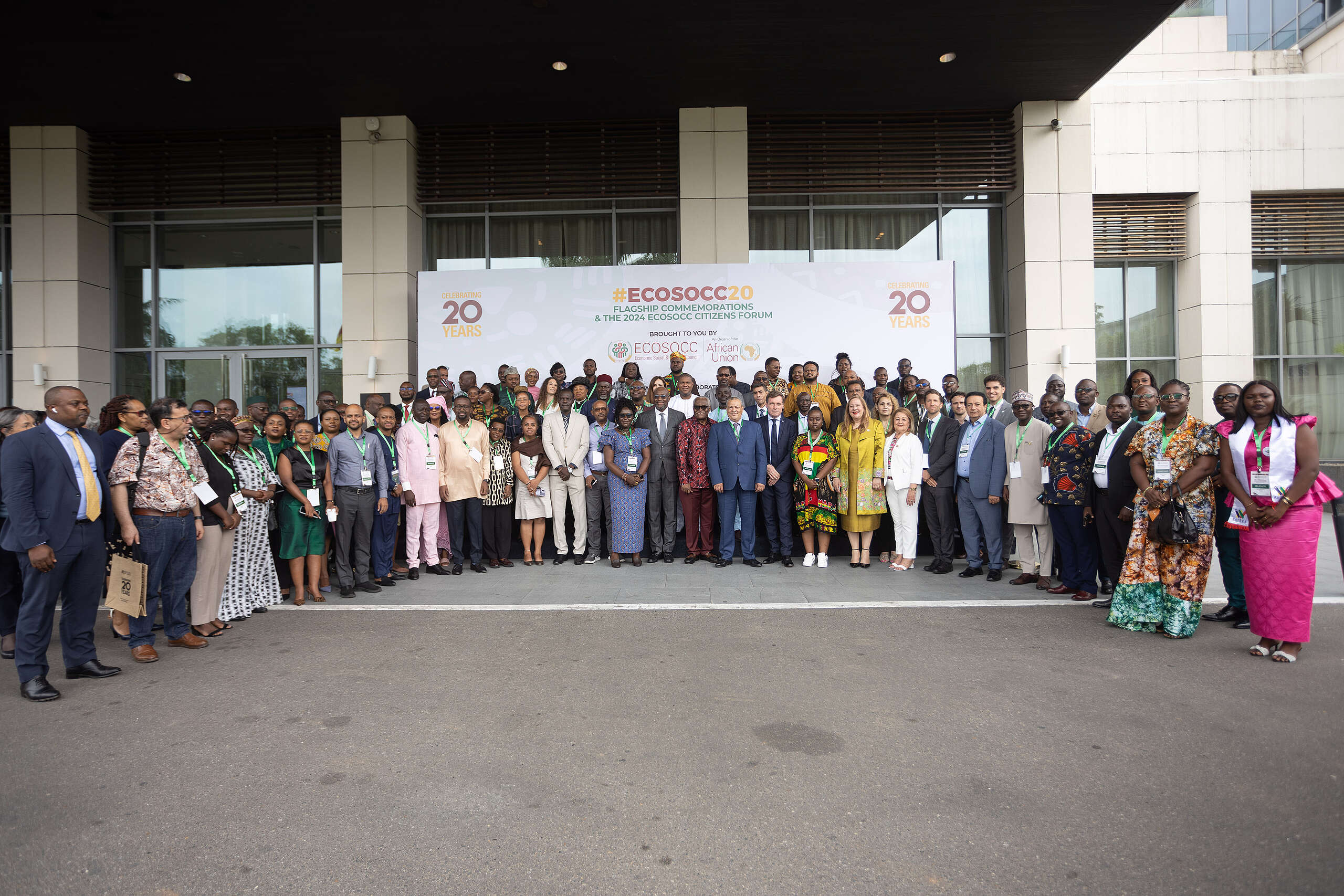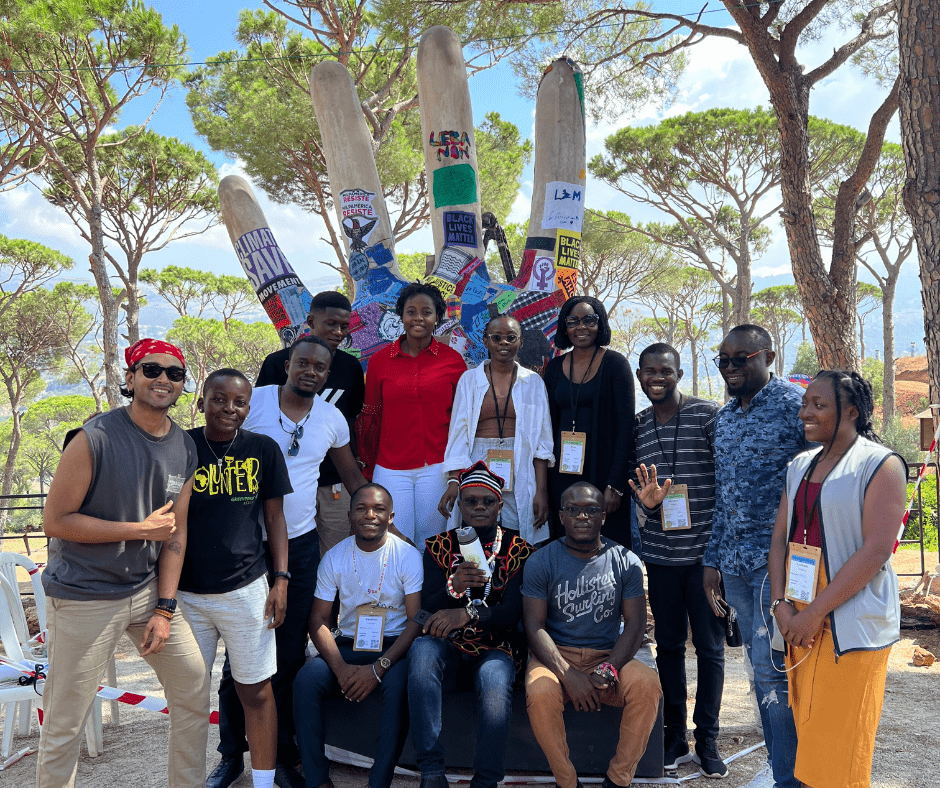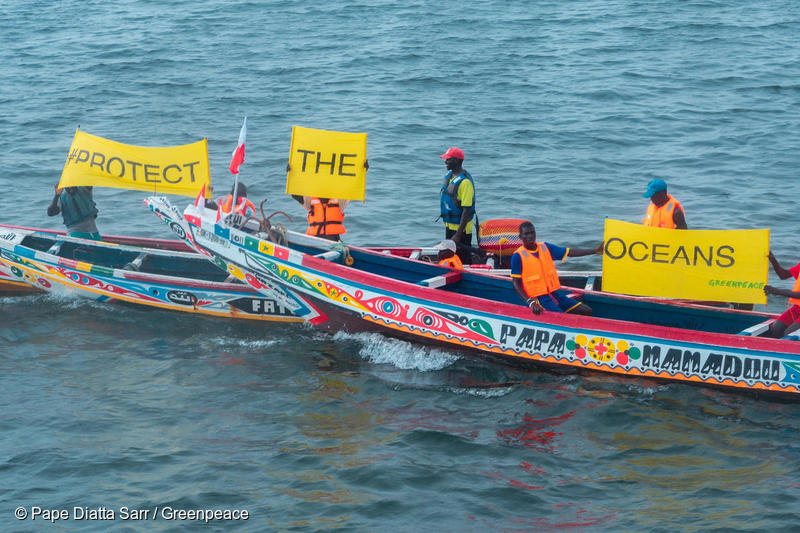The Indigenous Baka People of Cameroon
Introduction
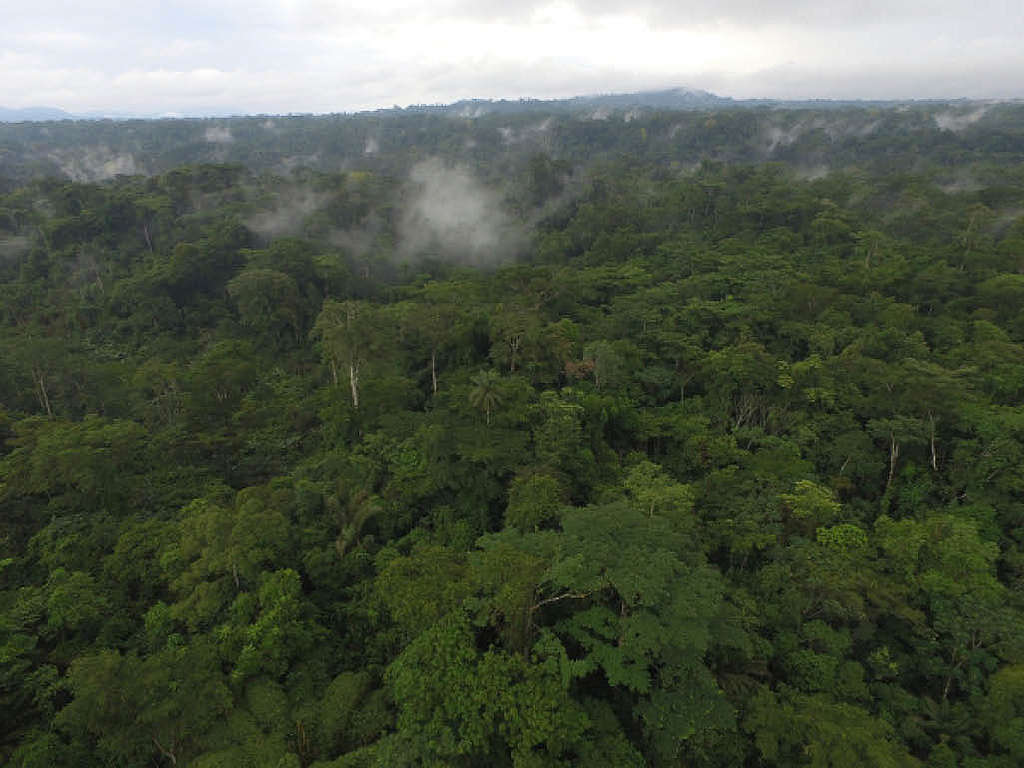
Cameroon’s Indigenous Peoples make up about 0.4% of its total population. With approximately 40,000 people, the Baka is the largest among them. Concentrated across about 75,000 km2 in the forest-rich Southeastern and Central regions, the Baka is organized in a clan structure, based on kinship and age. The semi-nomadic communities live in camps, traditionally in cone-shaped huts (mongulu). For many decades, Baka have been moving instead to roadside settlements, after their forests have been destroyed due to donor-subsidized multinational logging (often certified “sustainable” by the Forest Stewardship Council – FSC), as well as rubber and palm oil plantations.
Culture and beliefs
Baka culture is based on egalitarianism and the concept of sharing. Much decision-making power lies with Baka women. It is an oral and semi-nomadic society, relying mostly on hunting, fishing and gathering.
The Baka believe in a forest spirit, Ejengi. He protects them, accompanies them through life, death and rebirth as a spirit of the forest and ensures peace and stability. The Baka also believe in a multitude of “small spirits”.
“In Mbilthomas camp… we used to perform rituals and had visions… This helps us take the decision of whether to go hunting or not”
– Baka man
The Baka economy
The local economy uses hunting, fishing and gathering of non-timber forest products. The notion of accumulation and the hoarding of resources is foreign to the traditional Baka economy, since nature provides them with everything they need on a regular basis.
Due to restrictions as a result of industrial agriculture and logging, as well as conservation projects, the Baka increasingly practice agriculture crops (cassava, cocoyam). Only a few members of the Baka community are employed by companies that grab their lands and trash their forests.
“Before the Agro industry SudCam arrived, we had access to forest and carried out a lot of activities in the forest, some of which involved; farming, hunting, fishing, collecting… honey, bush mangoes, njansang. What we produced… was meant for feeding (our community) and as a source of income through selling to the bantus and bypassers”
– Baka woman from Southern Cameroon
The Baka and the forest
“No forest No Baka’, is a message one repeatedly hears from Baka people. The forest is their ancestral territory and source of livelihood: food, medicinal plants and the setting for recreational, cultural and spiritual celebrations.
“The forest is a pharmacy, a free food basket of supermarkets”,
– Baka woman during Greenpeace field trip in Bitye, Edjom and Nyamibete, (2019, July)
Colonial legislation was disastrous for Cameroon’s Indigenous People in terms of land ownership and access to forest resources, as well of course in terms of forced labor.
Today the Baka of Cameroon find themselves in a political environment strongly reminiscent of the colonial period. State laws marginalize them and other forest communities by “regulating” hunting, and imposing development projects and “conservation” projects that prohibit or restrict access into the forest.
Continuing a long history of multinational logging, forest clearing by Sudcam, a subsidiary of Singapore-based Halcyon Agri, involved human rights crimes: Baka were thrown off ancestral land and their culture and livelihoods threatened.
Since they have great local knowledge of the forest’s biodiversity and sustainability, Indigenous participation is one of the best ways to defend their rights and protect the forest. However, participation of Baka in forest policy in Cameroon has been virtually non-existent due to discrimination.
How COVID-19 affects Indigenous lives: Baka people in conversation with Greenpeace Africa
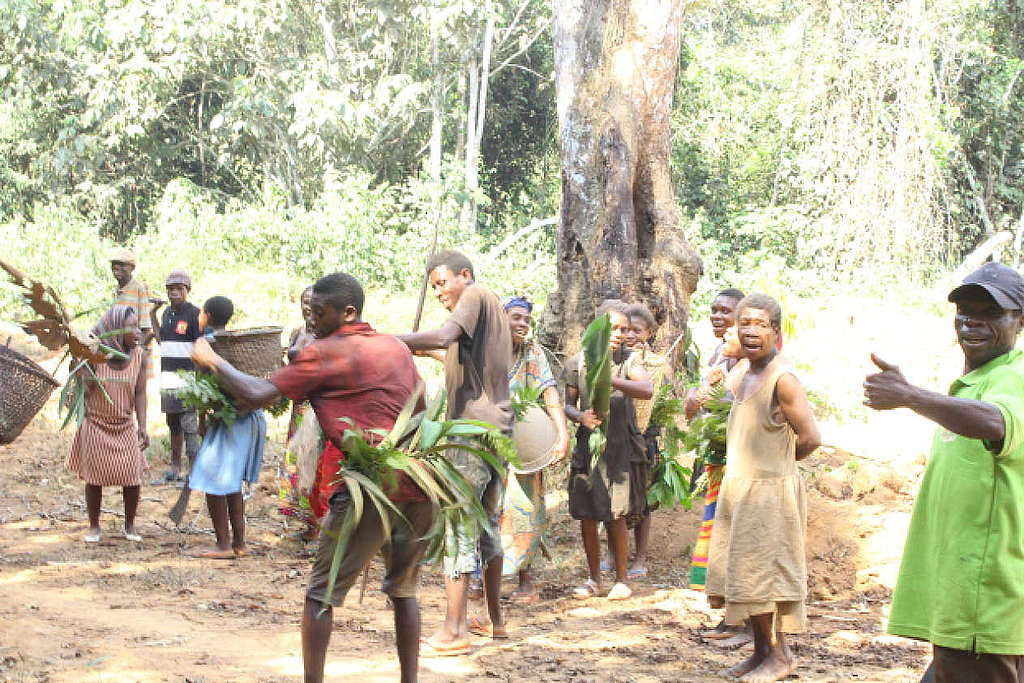
Nkolo Thade (Nyabibete – Baka Community:
We first heard about COVID-19 on local radio stations. Then some people and organizations began coming to our village to tell us about the disease. They gave us some protective materials, such as face masks and soap. They explained that the government put some restrictions on movement and that we should keep our village clean and constantly wash our hands with soap and water to reduce the spread of the virus. As Baka people, however, we regularly consume forest products and spend more time in the forest – that helps slow the wind and the spread of the virus.
We believe this disease was sent to the world by bad people from foreign lands in the West, set to kill people. But the disease ended up killing the bad people even more.
We are not really sure about transmission. All we know is that it’s transmitted from one person to another. That is why we limit contact with people outside our community. No one in the community has contracted COVID-19 so far, so we try and use preventive methods by using forest herbs and ensuring external visitors wash their hands.
What has changed for us is that most organisations who come and work with us no longer do so regularly because of coronavirus. The school program for our children has been suspended since teachers have stopped coming.
Our traditional belief is very important to us. It gives us the power to face all difficulties, including coronavirus. We believe our ancestors are protecting us from the disease. Since it began, our elders have gone once into the forest to talk with our ancestors and the spirit Ejengi. They came back with a message that we should limit contact with neighbors, boil and drink traditional herbs constantly, and call Ejengi in times of need.
Yemele Parfait (Edjom –Baka Community):
We the Baka faced with the COVID-19 are taking precautionary measures and we treat ourselves with our traditional ways, using tree barks from the forest. The pandemic does not scare us like it does others, but we worry organisations we work with might abandon us now.
Generally, we rely on our local knowledge and want to promote and share it. We think our knowledge can help the treatment of COVID-19. We would still like the government to help us, as we feel very exposed to the disease.
“Be hidden”: the story of the Indigenous People of the Lokolama village in the Democratic Republic of Congo (DRC)
Valentin Engobo, chairman of the local management committee of the forest concession for the Indigenous People of Lokolama, in conversation with Greenpeace Africa
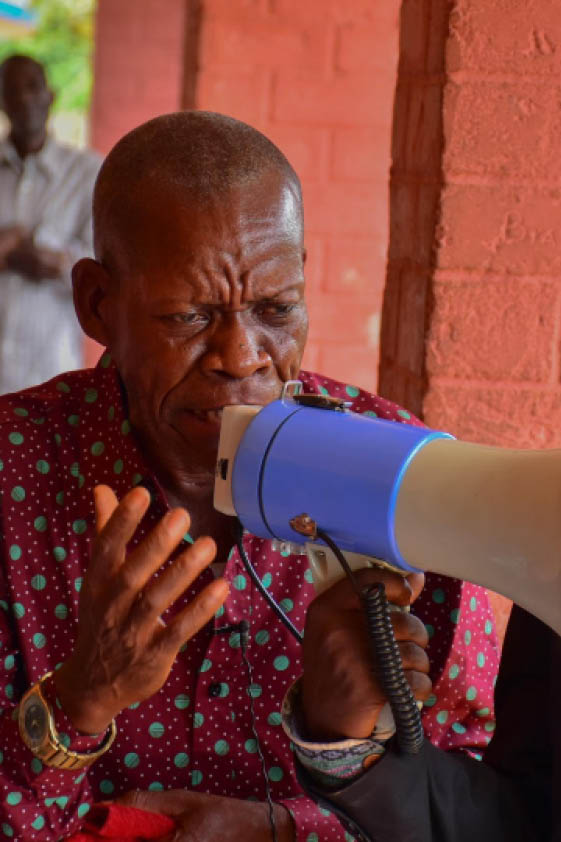
Background
The DRC has a population of about 84 million, but Lokolama has just 510 inhabitants in 81 households. With six people per household on average, it’s a young community, mostly under the age of 25. Our village was built in 1921 to meet the demand of the Belgian colonizers who wanted to organize local administration in the region, a process that lasted until 1938. Previously, we lived in this forest.
Our story is part of a large migratory movement that began in the current territory of Bolomba. It is a story of conflicts over lands between communities. Disturbed by these conflicts, some of the Indigenous Peoples (under the leadership of their ancestors, Bokulutu, Iyandja , Eenge and Ebubu Mosolo) had decided to leave. They settled in the current territory of Bikoro and the Elanga’s sector.
After the final victory over the local communities of Losanganya, our ancestors decided to distribute the lands between them and separate. Bokutulu settled in Wamba in the current forest of Lokolama. With his wife, Boselo Bofa Nsengo, they had a child called “Lokolama”, which means “be hidden”. Lokolama had three children, a girl and two younger boys: Iyonda, the elder, Lokongo and Kengele. They make up the three clans and current genealogical tree of the Indigenous Peoples of Lokolama village.
The succession of Lokolama village chiefs from 1921 to the present day starts with Bonkile W’Engobo, while Bonkile Hubert is the current chief of Lokolama and Bonkile Engobo Joseph is the traditional chief of all Indigenous Peoples in Lokolama.
Culture and belief
The people of Lokolama have a long tradition. Although we are open to other religions, we are first and foremost animists. We are forest peoples. We believe in the force of nature and of our ancestors, who always watch over us and support us at all times. We know that mystical forces are around us. We communicate directly with our ancestors through dances during weddings, deaths, births and other rituals.
Before going hunting or fishing, we invoke our ancestors to provide us with sufficient food and meet our daily needs. We invoke our ancestors to protect our fields and our harvests against our enemies. We also do ritual practices to ensure our births go well or to prevent and treat certain diseases among.
The forest has a central role in our identity. Even though our ancestors were forced to leave the forest by the colonizers and to settle in the village, the forest remains our natural habitat and it provides us with everything we need to live in peace.
We are protectors of this forest (we are ecologists in your modern language). We don’t need a GPS to navigate our forest. The forest is our market, we know what is good to eat and what isn’t. We do not have all the means of modern healthcare, so it is in our forest that we find all our medicines. Our forest is our pharmacy.
Because our ancestors live there, if the forest gets destroyed someday, the spirits of our ancestors might migrate elsewhere and we will lose our connection with them. We can never allow it. We’re developing our community forestry to protect this forest.
Economy
Apart from some working in the school village, we mainly live off agriculture, hunting, fishing and the sale of our non-timber forest products. Since COVID-19, nothing works and visits to our fields and forest are limited to gathering essentials to eat or to seek medicine for the sick. Our village has lost a lot, as seen in the table below, which details the prospective income that was lost due to the pandemic. We are more vulnerable than other neighboring communities and this situation must change.
Main sources of income per individual
| Main sources of income per individual | Monthly/CDF | Monthly/s |
|---|---|---|
| Agricultural | 17.000 | 8,4 |
| Permanent jobs (school teachers) | 140.000 | 69 |
| Hunting | 30 – 50.000 | 14,8-24,7 |
| Fishing | 20.000 | 9,9 |
| Breeding | 30.000 | 14,8 |
| Craft | 10.000 | 4,9 |
| Non-timber forest products (honey, caterpillar, mushroom) | 30.000 | 14,8 |
How COVID19 affects Indigenous lives
Even though the President of the Republic (Felix Tshisekedi) lifted the lockdown on July 21, we are frustrated and afraid. Frustrated – because all our activities were suspended, including the community forest project. People’s movements were restricted and our village no longer had any visitors to buy what we used to sell locally. We only did the mere essentials to survive. Afraid – since this pandemic seems to be a little mysterious to us, with everything that started from one sick individual who contaminated so many that the whole world is now impacted.
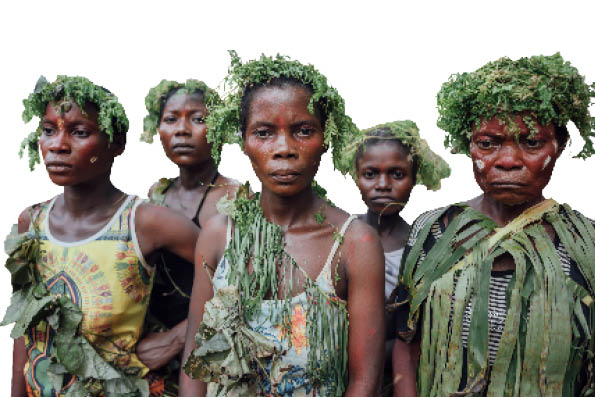
In our village, some believe that COVID-19 was invented for profits by white people, rich and powerful politicians around the world. They believe the pandemic would be limited to those people, since our ancestors would protect us against the pandemic. Others consider this pandemic to be real and that it is God’s way of punishing humanity because of social injustices. I’m among those who think this way.
Awareness of how to prevent this and on how to protect ourselves against this pandemic are necessary. If a small village like ours is affected, we risk losing everyone.
Based on research and field work by forest campaigners Sylvie Djacbou and Serge Sabin Ngwato and mobilization officer Andoh Ashu Rex
